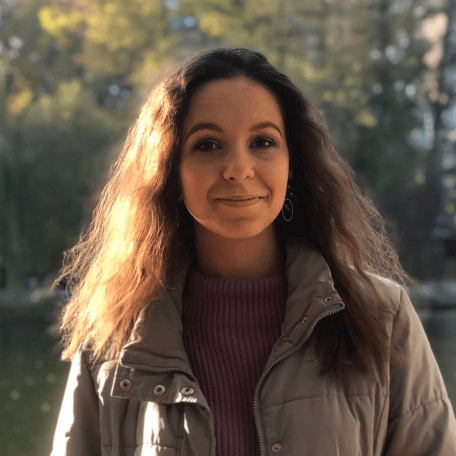It is common for some countries to make participation in volunteering activities or projects mandatory for high school students. This practice serves as a component of civic education, wherein children are accustomed to participating in community life and develop a sense of responsibility for their country. In the fall of 2023, Ukrainian MPs submitted a bill to Parliament to introduce a similar system here. However, the Parliamentary Committee on Education rejected it. Why did this happen, and how can the situation be rectified?
What does the bill propose, and why didn’t it come to a vote?
In September 2023, deputies led by Roman Hryshchuk submitted a draft law to the Verkhovna Rada aimed at promoting volunteering and recognizing the results of volunteer activities (Bill No. 10026, dated September 11, 2023).
The bill proposed that the results of volunteer activities be recognized and credited within the formal education system, including their inclusion in formal education documents. Under this proposal, organizations engaging volunteers would issue certificates indicating the direction and duration of volunteer activity, as well as the number of hours worked. Educational institution leaders would support the development of volunteering. According to the authors, the bill aimed to bring Ukrainian legislation closer to EU standards.
However, both the Reform Delivery Office and the Scientific and Expert Department of the Secretariat of the Verkhovna Rada noted that in the European Union, volunteering pertains to non-formal education rather than formal, as proposed in the bill. Additionally, according to the committee’s conclusion, the Ministry of Education opposed the bill. Firstly, it pointed out that formal education involves achieving “outcomes defined by educational standards” and “attaining qualifications recognized by the state,” while volunteering entails providing voluntary assistance. Secondly, it argued that the recognition and accreditation of volunteering results should not extend to the sphere of general secondary education because all students must undergo annual assessment or state final certification to recognize the learning outcomes obtained through non-formal education.
In other words, since volunteering is not part of the educational standard, it cannot be included in official education documents.
In our opinion, including volunteering as a component of the school curriculum is a good idea. However, how can we implement this idea so that students genuinely (not just on paper) engage in volunteering activities? Let’s look at the experiences of other countries.
United States of America
Today, the United States has one of the most developed cultures of volunteering integrated into its educational system. The primary goal of volunteering in the US is to benefit one’s community and the institutions within it. Volunteer activities may include caring for hospital patients, organizing local festivals, beach clean-ups, tutoring, active participation in youth councils and government agencies, educational outreach within community organizations, and more.
Requirements for student volunteer hours vary from state to state and also depend on the type of school: public or private. Some states require their students to engage in volunteer activities to receive a high school diploma (the number of hours can range from 10 to 200 per year), while others encourage volunteering through special courses or extracurricular clubs.
Schools in the USA take volunteer hours registration and tracking seriously. This can be done in two ways: through specially created online services (such as x2VOL, MobileServe, or GivePulse) or through paper or electronic forms developed by schools. In the first case, the school creates a request for confirmation of the number of hours dedicated to volunteering by specific students, and the community organization can confirm or reject this request. In the second case, the students fill out a form themselves. They indicate the number of hours and a description of the volunteer activity and provide this form to the organization where they volunteered for signature.
However, besides school requirements, what motivates students to dedicate their free time to community development? Besides developing communication skills and gaining academic or professional experience, volunteer hours play a huge role in college admissions in the USA. While universities do not have formal requirements for the number of volunteer hours, extracurricular involvement is one of the key factors determining the fate of applicants. Most American higher education institutions use a holistic approach to evaluating applicants – in addition to academic success, each student must demonstrate leadership qualities and community involvement.
EU countries
At the European Union level, volunteering is predominantly seen as an opportunity to acquire skills necessary for future employment or career development, so most programs are aimed at audiences over 18 years old. Significant emphasis is placed on international experience and opportunities for travel. Youth volunteer involvement is documented but is not directly related to the formal education system. Volunteering for school students is regulated at the level of individual country governments.
In the United Kingdom, there is no legislative requirement for school students to volunteer; however, such activity is encouraged at both the state and private levels. The National Citizenship Service (NCS) is a government-supported initiative offering a program of activities aimed at developing social responsibility. This program usually takes place during school holidays and targets students aged 16-17. Within the program, students develop and implement social impact projects in their communities. Participants receive a certificate signed by the Prime Minister upon program completion. The experience and skills gained through NCS can be valuable for college admissions or job interviews. Since universities follow a holistic approach to student selection and focus not only on academic achievements, including volunteer experience can strengthen a personal statement during admissions.
At the private level, one of the largest programs is the Duke of Edinburgh’s Award. The program aims to encourage young people aged 14-24 to participate in activities promoting community involvement. This program is mainly funded by private donations. Schools assist students in participating in this program and sometimes provide financial support. Upon completion, students receive an official certificate, which can be included in their academic portfolio. Possessing such a certificate enhances the chances of university admission. Volunteer experience can strengthen the Personal Statement, which is one of the selection criteria. Volunteer experience can serve as evidence of an applicant’s interest in a particular field (and universities seek motivated students) and their ability to create positive change.
Like in the United Kingdom, there is no compulsory volunteering for school students in Sweden. However, the Swedish education system emphasizes the importance of students’ participation in social and civic initiatives alongside academic learning. The Swedish National Agency for Education (Skolverket) provides schools with recommendations on incorporating social and civic activities into their educational programs and collaborating with community organizations. However, decisions are made at the community level: in some communities, volunteering is included in the curriculum, and attending such activities is a requirement for graduation. In other communities, it remains an extracurricular activity.
Schools themselves determine whether to track students’ extracurricular activities, including volunteering, and how to do so. Paper, online journals, and apps like Better Impact and Volunteer Mark are used to track volunteering work. Recognition tools include certificates, awards, and references confirming participation in volunteering activities. Such documents are included in academic portfolios or records. Volunteering provides an advantage for school students when applying to university or various scholarship programs. This experience allows students to emphasize their civic position, interests, and values.
In Austria, volunteering is offered as an alternative service: men eligible for military service, as well as women over the age of 17, can apply for one of three programs:
- Voluntary Social Year involves providing assistance to vulnerable groups such as older adults, people with disabilities, refugees, etc.;
- Voluntary Environmental Protection, whereby participants help organizations addressing climate change issues;
- Austrian Holocaust Memorial Service and Peace and Social Service Abroad programs are aimed at gaining volunteer experience abroad.
Volunteers participating in these programs receive pocket money and travel expenses from the government. The most common motivation for boys to participate in such programs is an alternative to military service. At the same time, it is the opportunity for girls to try out a specific type of employment, gain experience living independently, especially abroad, and acquire skills important for future jobs. However, this experience does not directly impact the completion of school or admission to higher or professional educational institutions.
Summarizing this experience, we can identify the following elements of integrating volunteering into the lives of youth:
- Motivation: admission to university or a line in the resume since higher education institutions and employers pay attention to the community involvement of future students or employees and their desire to acquire specific skills. Sometimes, the motivation for volunteering programs is the opportunity to travel (to get acquainted with another country) or to make useful connections;
- Verification/Certification: utilizing trusted platforms for certifying volunteer hours significantly streamlines tracking and reduces the risk of corruption;
- Regulation: Regulation at the national level may either be absent or provide significant autonomy to communities or individual schools. They may determine the mandatory nature of volunteer hours, the hours tracking method, etc.
Lessons and solutions for Ukraine
In our opinion, involving senior school students in volunteering work and community life would benefit both the students themselves and society (it could even contribute to reducing paternalism).
However, how can one effectively evaluate and account for the volunteer experience gained by school students so as not to burden educators with unnecessary paperwork on the one hand and, on the other hand, to avoid corruption risks, where students might obtain certificates without actual participation in volunteer activities? After all, NGOs, charitable foundations, and other volunteer centers are typically not affiliated with educational institutions. Therefore, the question arises: who can authenticate the acquired competencies and the actual number of volunteer hours worked?
The pertinent question is whether it is necessary to include volunteering experience in the education document or if a separate certificate, as in the case of the United Kingdom, would suffice.
Another important question regarding the practical implementation of this idea is the unequal access to volunteer centers. Residents of remote villages may find it more challenging to find volunteering organizations. In such cases, the only viable option would be online volunteering, but then the issue of equal access to the Internet arises. Another factor contributing to inequality is the economic status of families: if teenagers have to work to support their families, they will not have time for volunteering.
We propose the following possible solutions to these issues (they can be included in the bill if the authors decide to refine it).
The first solution is the introduction of electives in high school, which is planned as part of the educational reform. One of these elective courses could be volunteering. The credit and evaluation of the course would be based on the number of hours the student volunteered. Since the grade for this course would be factored into the overall GPA, students would have the motivation to successfully complete it. However, they would also have the choice to engage in volunteering activities or not, which aligns with the general concept of volunteering.
The second solution is the creation of clubs at schools, extracurricular institutions, or as part of student councils. In these clubs, students can obtain necessary information, such as a list of organizations categorized by their activities to which they can contribute. Participation in such clubs may involve regular meetings to coordinate and support students in their search for or change of volunteering organizations. However, if these clubs are led by school teachers, appropriate compensation should be provided for them. Therefore, implementing the proposed bill would require additional budgetary expenses or redistributing existing funds.
Thirdly, a certain coefficient (e.g., 0.1 points) could be added to the average score of standardized tests (e.g., EIT or NMT) for participation in volunteering activities. Although this coefficient may not have as significant an impact on the overall result as the average exam score, this portion of the score could be decisive when choosing between two students with similar academic achievements.
Finally, considering the bill proposed by the Ministry of Education regarding the implementation of grants, one of the criteria for obtaining a grant or determining its amount could be participation in volunteering activities. If certified volunteering activities increase the size of the grant or the likelihood of receiving it, young people will have more motivation to participate in volunteering.
It is unknown whether a similar bill will be submitted again. In case of submission, we recommend taking into account the experience of Western countries and the recommendations provided above. This will make the implementation of the law transparent and genuinely beneficial for society.
Attention
The authors do not work for, consult to, own shares in or receive funding from any company or organization that would benefit from this article, and have no relevant affiliations





